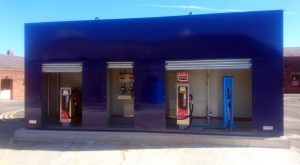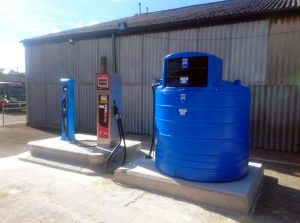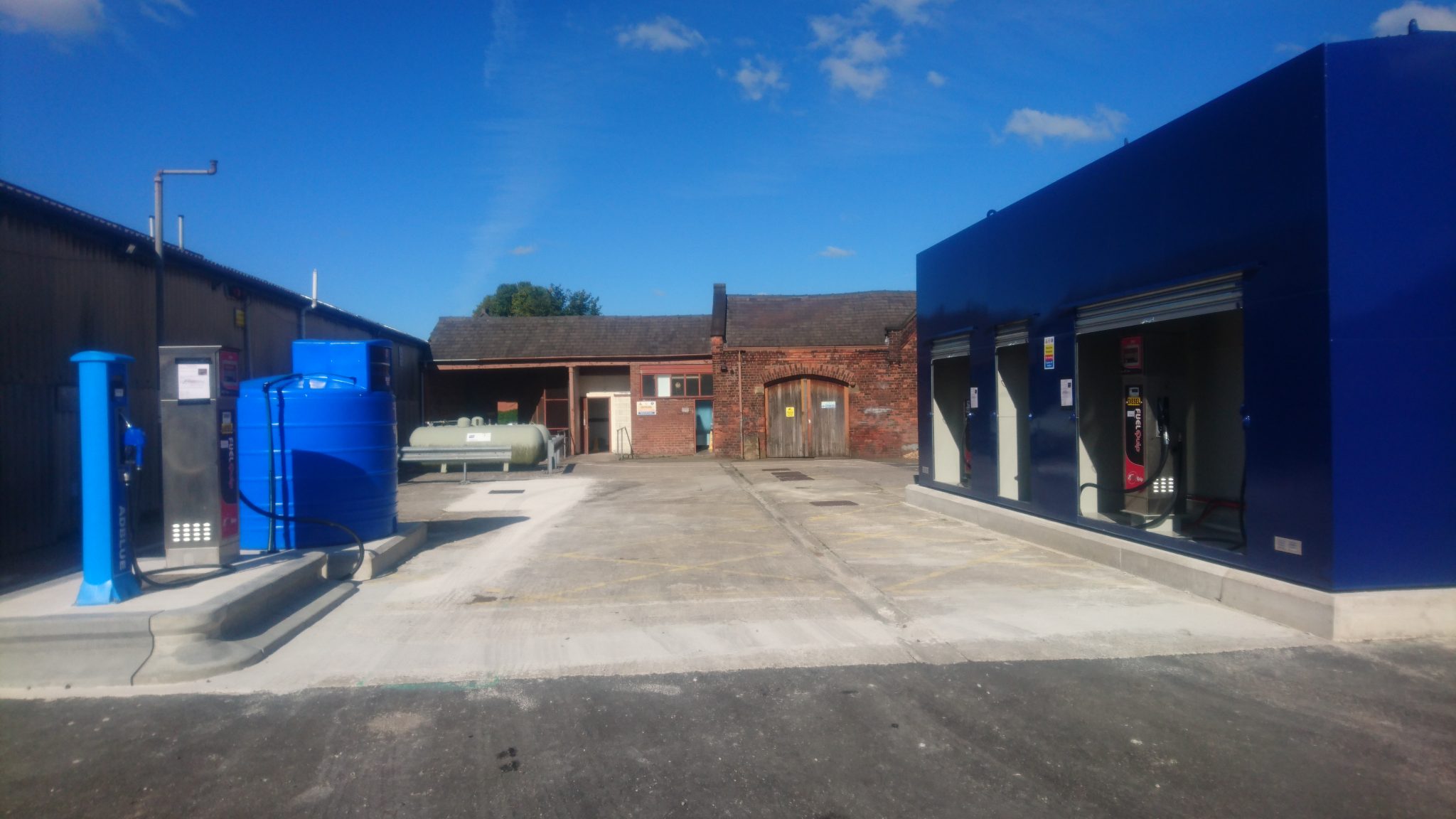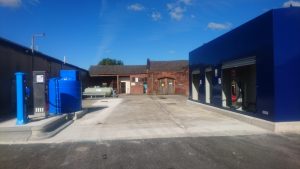FuelQuip Ltd Overhaul Refuelling Facilities at Preston City Council
Profile:
Situated on the north bank of the River Ribble, Preston City Council is an authority in Central Lancashire that covers 142 square kilometres.
Gaining City status in 2002, The City of Preston is home to one of the largest Universities in the UK – UCLan (University of Central Lancashire), and in November 2018 was named as “the most improved city” in the PwC Good Growth for Cities 2018 index.
Problem:
Increased pressure from the Government has meant that Councils nationwide have had to make serious cut backs and tighten budgets wherever possible. As a result of this, Preston City Council had identified an area in which improvements could be made and decided to look at alternative methods for refuelling their fleet of nearly 200 vehicles and items of plant.
Preston City Council’s fleet were originally fuelling up off site at a local bus depot. Unfortunately, sharing these facilities meant that the process of refuelling was not as efficient as it could be and lengthy waits for the fuel pumps were experienced. A lot of wasted man hours and idle vehicles were cause for concern and therefore needed to be addressed in order to make improvements.
Another major area of concern was the fact that the Council was being charged a premium by the bus depot for this inefficient service, making the cost of powering the entire fleet a very expensive affair. Drastic action was urgently required to ensure that the Council were operating in the most economic and financially viable manner possible.
The Answer:
FuelQuip are the UK’s leading Fleet & Fuel Management specialists and have been providing the most advanced and reliable refuelling solutions to some of the largest fleets in Britain for the past 17 years. Preston City Council approached local industry experts, FuelQuip Ltd, to assess the predicament that they had found themselves in and to help overhaul their facilities.
A preliminary site inspection confirmed that Preston City already had an underground Diesel fuel storage tank and a disused fuel pump but was unfortunately in desperate need of modernising. The fuel island was also covered with a canopy and had an obsolete fuel management system. The facilities present in the council’s yard were no longer compliant with the latest legislation and no longer financially viable to try to attempt to repair and put the equipment back into use.
It was decided that the equipment would be decommissioned, the existing canopy would be dismantled and the yard redesigned to accommodate a new refuelling station which would streamline the refuelling process and improve the flow of traffic.
Steve Preston, Managing Director – “FuelQuip are in a fantastic position whereby we can provide simple and basic set-up installations through to total turnkey packages of any sized project and complexity. We offer consultancy and advice along every step of the way to ensure complete customer satisfaction. From the initial consultation stage, through to the design, supply and installation of the refuelling facilities we worked closely with Preston City Council to ensure they received the best solution for their operation.”
The Installation:

Once the area had been cleared of the previous obsolete equipment, works commenced to provide Preston City Council with fresh onsite fuelling facilities.
Situated on a new re-enforced concrete base, the installation consisted of a brand new fully enclosed steel bunded fuel storage tank with dual compartments to hold 55,000 litres of Diesel and 5,000 litres of Gas Oil. The custom made unit – painted in the matching blue livery colour – came with 2 dispensing cabinets and a fill point cabinet, all complete with lockable roller shutter security doors and automatic lighting.
2 x FQHLB electronic tank level gauges with high/low/bund alarms were fitted inside the fill point cabinet to prevent the tank from being overfilled as well as to sound a warning alert.
If the contents level become critically low. The FQHLB electronic tank gauge will sound an on site alarm and is coupled to the FuelQuip Fuel Management System which sends out alerts to management via SMS. This is designed to prevent unnecessary delays and major disruption to business operation by running out of fuel.
The unit was completed with 1 x FuelQuip Premium Integral fuel pump which combines a fuel management system with a high speed fuel dispenser, 1 x FuelQuip Zeon pump to dispense Gasoil and an Adblue dispenser.

A new 2,500 Litre Bunded plastic Adblue tank was also installed and situated on its own raised concrete base with an Adblue dispenser and a FuelQuip Premium Integral fuel pump management system. This set up provides the ability to refuel Preston City Council’s entire fleet with minimum disruption as vehicles which have fill caps on different sides can now access fuel smoothly and seamlessly on the new one way system.
The Results:
By upgrading Preston City Council’s yard, the onsite refuelling facilities now complies with all the latest legislations. Relocating the fuelling process to be conducted onsite and redesigning the yard to be more streamlined has instantly improved the flow of traffic for the fleet of nearly 200 vehicles and items of plant. Drivers and vehicles are no longer left idle for unnecessary periods of time waiting to refuel at a remote location which has dramatically enhanced the efficiency of resources at Preston City Council.
The traceability of the entire fleets fuel usage can also be properly monitored in-house easily and accurately via the web based Fuel Management software. The FuelQuip Fuel Management software is a very powerful programme packed full of features and benefits as even the most basic, entry level software package can manage up to 3000 vehicle and 3000 drivers – perfect for an ever expanding fleet.
The user-friendly layout includes lots of unique timesaving attributes to help the Council identify where further improvements could be made and hopefully make even more savings. Preston City Council can now run reports on vehicles to identify which vehicles are underperforming or if any driver habits need to be addressed. For example, whilst it is inevitable that accidents unfortunately can and do happen, if a driver is found to be repeatedly causing damage by pulling away with the nozzle still attached or if the MPG is always low, the system can be used to highlight if extra training is required or if disciplinary action needs to be taken.
Overall, whilst the Council have had the initial outlay of the equipment to cover, the savings to be made from upgrading will be huge. Within a few years the investment will have completely paid for itself in comparison to the ongoing cost of charges incurred from fuelling offsite at the bus depot.



